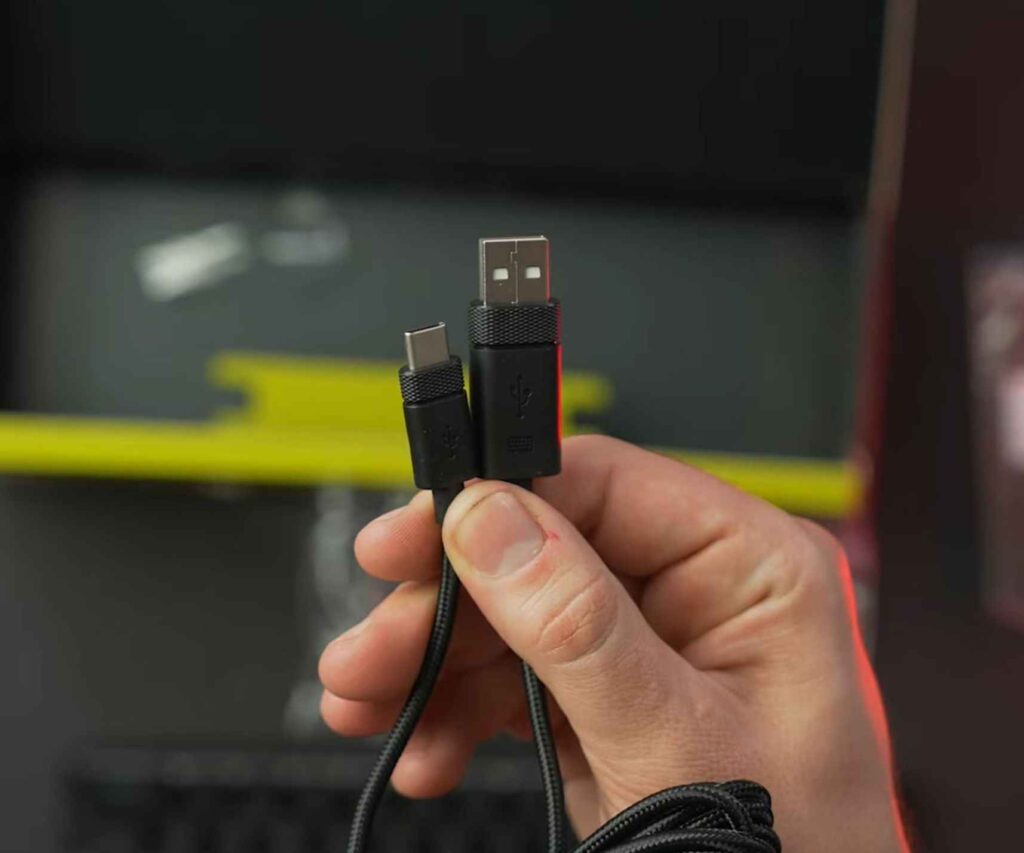There is a lot of concern over the safety of USB cables these days. Some people are concerned that they may contain lead, which could be harmful to our health. So, do USB cables contain lead? And if so, is it a major concern?
The answer to this question is a bit complicated. While it is true that some USB cables may contain lead, it is not typically in large enough quantities to pose a health risk.
In most cases, the amount of lead in a USB cable is so low that it is not considered dangerous.
In this blog post, we will further explore the topic of lead in USB cables and whether or not it is a cause for concern.

Why lead is dangerous
Lead is a heavy metal that can be found in many common household items. It is especially dangerous to children because it can damage their developing nervous system.
Lead poisoning can weaken you, damage your kidneys and brain, and cause anemia. High levels of lead exposure can be fatal and can cause death.
Lead can pass through the placental barrier, So, pregnant women who are exposed to it also put their unborn child at risk. The growing neurological system of a baby can be harmed by lead.
It has been discovered that lead exposure, even at low levels, has an impact on behavior and IQ in developing infants. Lead exposure can result in stillbirths, miscarriages, and infertility (in both men and women).
So it is no wonder that people are concerned about the possibility of lead in USB cables.
Do charging cables contain lead?
The charging cable or USB cable may contain lead. PVC contains lead for several reasons. Lead increases the plastic’s flexibility and minimizes the risk of fire in wires and connections.
But are USB cables dangerous?
Since lead has been listed as a possible carcinogen. Manufacturers are required to demonstrate to the state of California that the level of lead in their power cable is safe. A Cancer.org article on Proposition 65’s warning labels stated that.
Depending on what they do with the cord and how long they handle it, a person may absorb a certain amount of lead. But there is no way to assess the risk or even level of exposure for any one person handling electrical cords or cables.
The main ways that people are exposed to lead are through ingestion and inhalation of lead powder. The lead found in the cables is not in powdered form. So you are not at risk of inhaling it.
In most cases, the amount of lead in a USB cable is so low that it is not considered dangerous. So, while it is true that some USB cables may contain lead, it is not typically in large enough quantities to pose a health risk.
Prevention
While the amount of lead in a USB cable is typically very low, there is still some concern over its safety.
This is because the metal can leach into our bloodstream if we are exposed to it for a long period.
To minimize your exposure to lead, you can take some simple precautions
Wash your hands after handling a USB cable
It is a good practice to wash your hands after handling any type of electronic device, including a USB cable. It’s not just lead your cable might have been in a lot of places collecting all kinds of dirt and grime.
So it is better to just wash your hands when you are about to eat something. Not to mention, it is always a good idea to practice good hygiene.
Do not chew on your USB cables
This one should be pretty obvious, but most of us have a bad habit of putting cables in our mouths or chewing on them when we are thinking or when watching something like a movie.
This is a bad idea for several reasons. First, it can damage the wires. Second, you are exposing yourself to lead and other toxins that might be on the cable.
So, try to break the habit of chewing on your USB cables. If you need something to chew on, try gum or a piece of candy instead.
Avoid cheap and non-branded cables
When it comes to USB cables, you get what you pay for. Cheap, off-brand cables are more likely to be made with inferior materials, including lead.
To be safe, stick with well-known brands that you trust. Such cables will have undergone rigorous testing to ensure that they meet safety standards.
Conclusion
I hope you found this article informative. In theory, yes, USB cables can contain lead. However, the amount of lead is so low that it is not considered dangerous.
Still, if you are worried you can take some simple precautions to minimize your exposure to lead.
Like, wash your hands after handling a USB cable and do not chew on it. Also, avoid cheap and non-branded cables. Stick with well-known brands.
